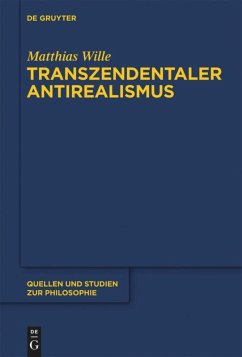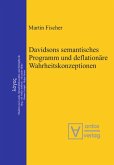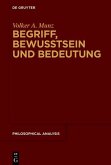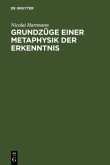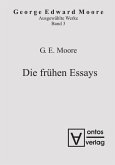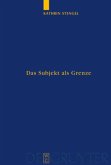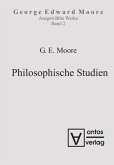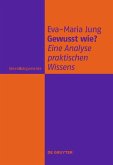Most modern epistemologies violate philosophical conditions of sense, as first formulated by Kant, because they assume a standpoint that transcends knowledge. This investigation works out in detail the sensible, linguistic, and meaning-theoretic foundations of a theory of knowledge that is committed to knowability. This approach succeeds not only in concisely reformulating and solving the problem of the external world but also in providing a fundamental, linguistic interpretation of Kant's Critique of Pure Reason.
Die meisten modernen Epistemologien benutzen zur Formulierung ihrer Problemexpositionen wissenstranszendente Standpunkte. Damit verstoßen sie gegen Sinnbedingungen philosophischen Argumentierens, deren Einhaltung bereits von Kant gefordert wurde.
Die vorliegende Untersuchung erarbeitet im Detail die sinn- und sprachkritischen sowie bedeutungstheoretischen Grundlagen einer Erkenntnistheorie, die einzig auf Wissbarkeit verpflichtet ist. Dies umfasst im Einzelnen die Bereitstellung einer Theorie epistemologischer Präsuppositionen, einer antirealistischen Bedeutungstheorie, einer transzendentalphilosophischen Sprach- und Kategorientheorie und einer Theorie des epistemologischen Gedankenexperiments. Diese systematische Grundlegung wird begleitet durch die Aufbereitung der einschlägigen philosophischen Problemgeschichten.
Mit diesem Ansatz gelingt nicht nur eine konzise Reformulierung und Lösung des Außenweltproblems, sondern darüber hinaus eine leistungsstarke sprachkritische Interpretation von Kants Kritik der reinen Vernunft.
Hinweis: Dieser Artikel kann nur an eine deutsche Lieferadresse ausgeliefert werden.
Die meisten modernen Epistemologien benutzen zur Formulierung ihrer Problemexpositionen wissenstranszendente Standpunkte. Damit verstoßen sie gegen Sinnbedingungen philosophischen Argumentierens, deren Einhaltung bereits von Kant gefordert wurde.
Die vorliegende Untersuchung erarbeitet im Detail die sinn- und sprachkritischen sowie bedeutungstheoretischen Grundlagen einer Erkenntnistheorie, die einzig auf Wissbarkeit verpflichtet ist. Dies umfasst im Einzelnen die Bereitstellung einer Theorie epistemologischer Präsuppositionen, einer antirealistischen Bedeutungstheorie, einer transzendentalphilosophischen Sprach- und Kategorientheorie und einer Theorie des epistemologischen Gedankenexperiments. Diese systematische Grundlegung wird begleitet durch die Aufbereitung der einschlägigen philosophischen Problemgeschichten.
Mit diesem Ansatz gelingt nicht nur eine konzise Reformulierung und Lösung des Außenweltproblems, sondern darüber hinaus eine leistungsstarke sprachkritische Interpretation von Kants Kritik der reinen Vernunft.
Hinweis: Dieser Artikel kann nur an eine deutsche Lieferadresse ausgeliefert werden.

